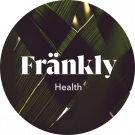The most common CBD questions answered

While Cannabidiol, or CBD, is the millennial product of the moment, many questions may arise as to what it is, why use it and how it affects the human body. In this post, we look at many of the common questions that are asked in reference to this new “hip” product that you’ll be able to find in products ranging from edibles to skincare, to medical drugs.
What is cannabidiol or CBD?
Wikipedia defines CBD as a phytocannabinoid, one of the 113 identified cannabinoids in cannabis plants, accounting for up to 40% of marijuana or hemp extracts. Simply put, it is a chemical compound found in the marijuana plant.
Unlike the other major ingredient of marijuana, THC, the acronym for delta-9-tetrahydrocannabinol, CBD is not psychoactive, meaning that its usage will not get you high.
Cannabis is made of two major components- CBD and THC; the plant can easily be broken down into psychoactive and non-psychoactive parts. THC is the reason for the euphoria or high that you might feel after consumption of marijuana.
CBD, on the other hand, being the non-psychoactive part of cannabis, will leave you feeling relaxed and less anxious, but not necessarily high.
What do the health experts say about CBD?
Because medicine is based on scientific evidence-based research and not a ton of conclusive testing and trials exist on the subject, doctors might be loath to prescribe CBD as a substitute for actual medicine.
As per the United States Food and Drug Administration, or the FDA, there is currently only one medical product that has been approved to be prescribed as a drug. That drug is called Epidiolex and is used to treat particular types of epilepsy.
Having said that, the FDA website also mentions that the department is aware of many products that claim certain benefits through their products containing CBD. While the FDA is a long way from approving such products, many people, especially in the American states where cannabis is legal, are eager to try CBD based products for many of their aches and pains.
For example, Dr Houman Danesh of Mount Sinai Hospital in the city of New York, has gone on record saying that he sees multiple patients enquire daily about CBD in reference to pain management. Because there isn’t much serious research done on the compound and results are mostly hearsay evidence, it becomes tough to accurately gauge the effect of CBD on patients with joint or back pain, bone degeneration or even something as grave as cancer.
What are the uses of CBD?
The lack of substantial formal testing and evidence has not seemed to deter people from trying products with CBD for all sorts of ailments and malaises.
CBD products have been used to help alleviate pains in the lower back area as well as common problems like headaches and migraines. CBD Oil has also been suggested to help with anxiety and stress.
Most medical experts note that CBD might help in pain management because CBD is often able to numb nerve endings. This is especially true in the case of CBD suppositories or CBD infused tampons which might help in nasty stomach cramps by supplying CBD to be absorbed by the vaginal membranes.
How should you take CBD?
While there are a plethora of ways to take CBD, the majority agree that it is mostly through vaping, ingestion of edibles or tinctures and topically applied creams and gels.
It would be accurate to say that the method would depend on what you’re using CBD for and in cases of pain management, how severe is the actual pain. Vaping is the fastest way to absorb the CBD but the relief is also shorter-lived. For example, it could start affecting you in 10-15 minutes, but might only last for a couple of hours.
In comparison, something edible like CBD brownies or candy might start its work in 30-35 minutes but might last much longer.
It also depends on how severe is your pain, where obviously, more pain would require a higher dosage.
The latest CBD products
As mentioned earlier, CBD has become the new “in” thing to try, especially in the age of social media and its many influencers. I suppose the cute and well-designed packaging helps too! God knows, this millennial woman loves a beautifully packaged product!
Because of the thousands of millennials wanting to adjust to societal definitions of being “hip”, there has been a rapid boom in products containing CBD. The wellness industry, in particular, seems to have come out in full force in its support for CBD infused products.
For example, and this is no joke, have you heard of salad dressings containing CBD? CBD oil is becoming a common product that can be consumed tossed over a salad or if you’re feeling particularly fancy, make it into a hemp vinaigrette. Or how about CBD chocolates that are pitched as being able to relieve anxiety and stress?
CBD has found its way into the beauty industry too, with many stores jumping the bandwagon in creating skincare and other essential beauty products that have some concentration of CBD in them. Read more about CBD skin care benefits.
According to an article on the Forbes website, luxury retailer, Saks Fifth Avenue in New York, has now launched a “CBD Beauty Corner”, with products ranging from moisturisers to foundations. The article also mentions that the CBD beauty segment of the entire CBD market is estimated to reach $25 million in the next decade, thereby occupying about 15 per cent of the worldwide market for skincare.
CBD infused tampons are fast becoming the new normal, with companies that manufacture these wellness products, claiming that their suppositories and tampons that are infused with cannabidiol, help alleviate severe cramps and discomfort by providing the body with relief directly where it is needed.
Of course, it is well worth mentioning that every individual reacts to CBD differently- another major reason why it is difficult to determine the right CBD dosage. Many clinical studies are underway to further understand the effect of CBD on the human body and its alleged advantages for pain and mental health. What remains to be seen are conclusive results.














